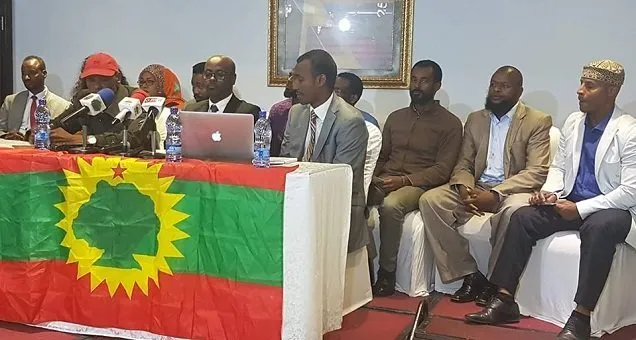The Oromo Liberation Front (OLF) has officially resumed control of its national headquarters in Finfinne (Addis Ababa), marking the end of a nearly four-year standoff that began in August 2020.
The handover was conducted in the presence of officials from the Addis Ababa Branch of the Joint Council of Political Parties, with the OLF acknowledging the pivotal role played by the National Election Board of Ethiopia (NEBE) and the Joint Council in facilitating the process.
“We welcome this outcome as a crucial step toward restoring our constitutional and political rights,” said Lemmi Gemmechu, the OLF’s current Public Relations Officer.
A Headquarters Seized
The party was denied access to its main office following a police raid in 2020. At the time, law enforcement authorities claimed they were acting on unspecified security concerns raised by internal party members. The move led to the forceful removal of senior OLF leaders from the premises, including the chairman, Dawud Ibsa.
Shortly afterward, Dawud was placed under house arrest, coinciding with a broader political crackdown in the wake of the assassination of Oromo artist Hachalu Hundessa in June 2020. Several top-ranking OLF members were also detained in violation of court orders, effectively stalling the party’s operations.
Despite being shut out of the facility, OLF representatives say they never surrendered legal ownership of the building. Security personnel loyal to the party remained stationed at the premises throughout the impasse.
A Step Forward, With More Ahead
Speaking to the media, Lemmi Gemmechu confirmed that the restoration of access came after sustained negotiations and pressure from the political community. “We made countless appeals over the years, and our allies in the Joint Council also intervened repeatedly,” he said.
He added that while the reopening of the Addis Ababa headquarters is a vital milestone, the OLF still faces a long road ahead. “We’re now focused on reactivating more than 200 regional offices that remain closed across the country.”
The party emphasized that political office space is not just a logistical matter but a foundational aspect of democratic participation. “The right to assemble begins with having a place to organize,” Lemmi said.
The move is being viewed as a potential indicator of renewed political accommodation in Ethiopia, where opposition groups have long faced structural barriers. However, the extent to which the reopening of one headquarters signals a wider shift remains to be seen.



